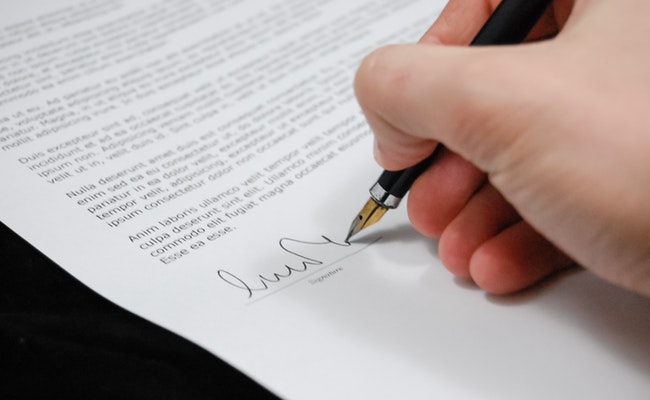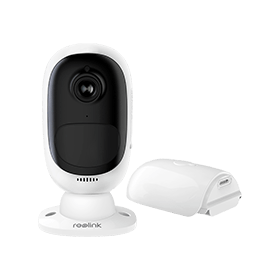Encountering Bad Landlords? Practical Solutions Here to Deal with Difficult Slumlords

Let’s face it:
Unreasonable landlords who enter your rental units without your permission, refuse to make repairs and raise the rents with an unacceptable rate do drive you nuts.
In fact, you are not the only one concerning how to deal with bad landlords.
A report shows that a total of 1879 petitions on landlord-tenant disputes are filled with San Francisco Rent Board in the fiscal year 2017-2018, with a 5% increase compared to that of the last fiscal year.
To get rid of difficult landlords and enjoy your life in rental units, continue reading and learn how to handle nosy and unreasonable landlords in a breeze.
How to Deal with Snoopy Landlords Who Enter Your Rooms Randomly
Find clues that nosy landlords have entered your rentals secretly and messed up your rooms, but have no ideas about how to confront them successfully?
Here are 3 practical solutions on how to deal with bad landlords who access your rooms without reasonable notices or your permissions.
Solution 1. Ask Your Landlords to Give Acceptable Notices
Your landlords may come over your rental units for multiple reasons: to make repairs, to show the properties to prospective tenants and buyers or simply to inspect the premises.
And, that must be done with reasonable notices sent to you in advance.
Nearly half of the states in the U.S. rule that a landlord must give proper written notices before entering a tenant’s rental unit in state laws.
So, to handle nosy landlords who access your rentals without consent, tell them about your concerns firmly and ask them to give reasonable notices at least 24 hours before entering your apartments.
But there are also exceptions: in case of any emergencies like a fire and a gas leak at the property, landlords owe the right to access without prior notices.
Solution 2. Set Up Security Cameras to Catch Nosy Landlords in the Act
Your snoopy landlords may come over your apartments when you are away from home.
To deal with such a bad landlord who is unreasonable, a feasible way is to install security cameras as your best guard, which will inform you about the unwelcome visitors with instant alerts. Also, such CCTV footage can be served as a piece of strong evidence against your landlords’ lies.
Note that installing wired security cameras in your rental properties requires drilling holes and running messy cables, which may result in damages to the rentals and bring about landlord-tenant disputes.
To avoid any possible arguments with your landlords, it is more feasible to go for wire-free security cameras that are powered by rechargeable batteries and require no cables and no hole drilling.
100% Wire-Free Starlight Camera
Rechargeable Battery & Solar Powered; Outdoor/Indoor Protection; 1080 Full HD; Starlight Night Vision; 2-Way Audio; Live View Anytime Anywhere.
Even when your lease terminates and you decide to move out, you will be able to take the portable battery-powered security cameras along with you and set them up in your new apartment effortlessly.
Further Reading: Click here to learn whether it is legal for tenants to set up security cameras inside or outside the rental units.
Solution 3. Take Legal Actions Against Landlord Harassment
Landlords who enter your apartments without your consent can be accused of harassment. So, to protect yourself from a bad landlord, you may take legal actions against them.
Collect some solid proofs like security camera recordings and notices in written form, file a complaint against the landlords and get an injunctive order from the court to stop the harassing behaviors.
Aside from landlords’ unreasonable entry to your rental units, you can also sue landlords for harassment including:
• Self-help eviction
• Failing to perform maintenance tasks
• Threatening tenants
• Cutting off amenities included in the lease
• Refusing to accept rent payment
• Sexual harassment
Dealing with Landlords Who Refuse to Make Repairs: 4 Practical Solutions
Renting apartments from a slumlord who milks the property and never performs maintenance is definitely a nightmare.
To help you deal with bad landlords who refuse to make repairs, we have collected the most effective solutions recommended by many tenants for you as follows:
Solution 1. Request Repairs with Proper Notices
The best way to request a repair is to give a notice in both verbal and written form to your landlord in advance and schedule the repair time.
If there are any neighbors, you may unit with them and send repair request to your landlords as well. By doing so, the landlords can’t escape the maintenance tasks anymore.
Solution 2. Review Your Leasing Contracts
Another way to handle difficult landlords is to beat them with the lease.
Generally speaking, clauses about landlords’ responsibilities to maintain the property in livable conditions are included in the leasing contracts.

If such clauses are included in your leasing contracts, just confront the landlords who refuse to make repairs and tell them you may charge against them for failing to perform maintenance.
Solution 3. Report Bad Landlords to Local Authorities
Mind that in some bad neighborhoods, many slumlords rent illegal apartments without registration and health inspections.
To deal with a slumlord who doesn’t make major repairs, just get local building and health inspection authorities involved.
Once receiving your reports, inspectors may investigate on your landlords and conduct a throughout health inspections on your apartments to make sure the buildings meet the health and livable conditions.
If not, the problem landlords may face penalties including fines and even imprisonment.
Solution 4. Think Twice Before Withholding Rents
“Can I legally withhold rent?” “Can you withhold rent for no heat?”
Withholding rents can be a useful tool to force repairs, but also a reason for landlords to evict you for no-payment.
So, it is best to think twice and search for local laws addressing rent withholding before doing so.
For example, the Massachusetts general laws rule that a tenant is allowed to withhold a portion of the rent when a landlord fails to maintain the building in habitable condition (Chapter 239, Section 8A).
Also mind that once your landlords repair all the defects, you will have to pay all the withheld rents.
What to Do When Your Landlords Raise Rents Unfairly
When receiving a notice from your landlords that your rent is increasing, you seem to have very limited choices: pay or move out.
But, in fact, you may take some extra solutions before making the final decisions.
Solution 1. Check If It Is Landlords’ Retaliation
It is quite understandable that your landlords may increase the rents with reasonable rates.
However, some difficult landlords may require an unfair rent increase as revenge against tenants or to get you to move out, which can be considered as landlords’ retaliation (click here to learn how to prove).
In such a situation, just contact local landlord-tenants attorneys and put forward your ideas. They will offer you professional suggestions and defend your rights against unreasonable rent increases.
To prevent landlords’ retaliation, it is best to pay the rents on time and stick to the terms and conditions of the lease when you reside in the landlords’ properties.
Solution 2. Make Sure That You Receive Proper Notices
Most states in the United States require landlords to give prior notice of a rent increase.
For example, in California, landlords must inform the tenants with a 30-day notice if the rents increase by 10% or less. When the increase rate is higher than 10%, landlords are required to give you a minimum 60-day written notice. Both come with another 5 days if landlords send the notices via mail.
So, if your landlords don’t notice you about the rent increases ahead of the time that is required by the local laws, you may refuse to pay the increased rents and take legal actions against your landlords.
Solution 3. Negotiate with Your Landlords for a Mild Rent Increase
What should you do when receiving the proper notice but find the rent increase beyond your budget?
Just negotiate with the landlords in a reasonable and patient manner. Tell your landlords that you may not be able to afford the rising rent prices and think about moving out if the negotiation fails. It is possible that your landlords will reduce the increase rate a little bit to keep you!

Mind that this solution only works when you are believed to be reliable tenants, who pay the rents on time and stick to the clauses to the lease.
Solution 4. Sign a Fixed-Term Contract
If you decide to reside in the properties for a long time, it is best to sign up a fixed leasing contract longer than one year with your landlords.
When the fixed-term lease is in effect, a landlord is not allowed to raise the rents and you will be free of paying the rising rents and pursuing rent ads as well.
More Solutions to Deal with Illegal Actions Your Landlords Could Be Taking
Aside from the three typical bad landlords mentioned above, there are some problem landlords intruding on your rights in other ways. Here are some of the examples and how to deal with bad landlords effectively.
#1. Install Hidden Security Cameras Inside Your Rooms
It is legal for landlords to set up security cameras in public areas of the properties to keep an eye on the building and prevent theft.
However, it is not that case when bad landlords set up hidden cameras inside the rental units.
Further Reading: Click here to learn more about the legality for landlords to put up security cameras in rental property.
What to do when you find hidden surveillance equipment in your apartments:
• Ask your landlords to remove them out of your rooms asap
• Review the contrasts to see if the usage of security cameras is mentioned
• Call the police if your landlords refuse to do so
#2. Include Illegal Clauses in the Lease
Some cunning landlords may include illegal clauses in the lease to maximize their profits.
For example, some of the bad landlords may add clauses to the leasing agreement that a landlord is not required to perform maintenance tasks in the buildings.
To deal with such bad tenants, it is best to read your contracts very carefully before signing. If you have signed up such an illegal agreement, seek legal advice from local attorneys and look for a new apartment at the same time.
#3. Discrimination Against Tenants
Landlords’ discrimination includes but is not limited to:
• Refuse to rent housing to tenants because of their skin colors
• Inconsistent in tenant screening
• Practice different standards for tenants
• Establish different terms and conditions in the lease
Once you find out the existence of discriminatory practices, file a discrimination claim with U.S. Housing and Urban Development (HUD), which is responsible to end discrimination against both landlords and tenants.
#4. Use Tenants’ Security Deposits or Take Tenants’ Properties at Random
Landlords are required to keep tenants’ security deposits for unpaid utilities, damages to property and past-due rents and so on. Misappropriation of the security deposits is considered to be illegal.
Meanwhile, landlords are also not allowed to take tenants’ properties in lieu of rents or compensation for damage.
If your landlords deduct your security deposit randomly or take your properties without permission, you may contact local attorneys and seek legal assistance.
Have you ever encountered bad landlords? If yes, how do you deal with them? Share your experience and solutions with the other tenants who are facing the same problem in the comment below!
Search
Subscribe for the Latest Updates
Security insights & offers right into your inbox

